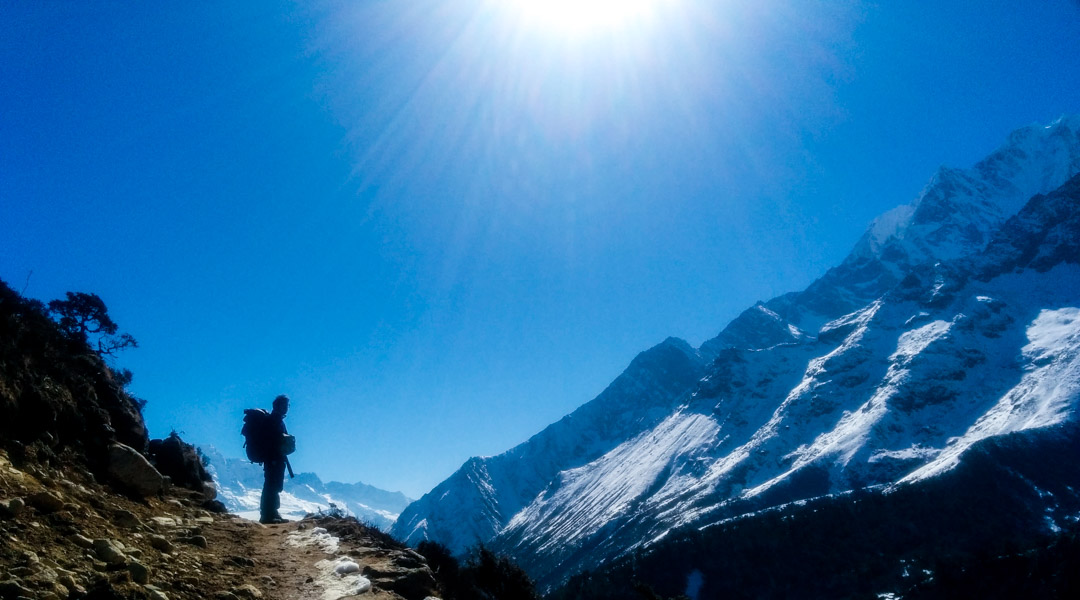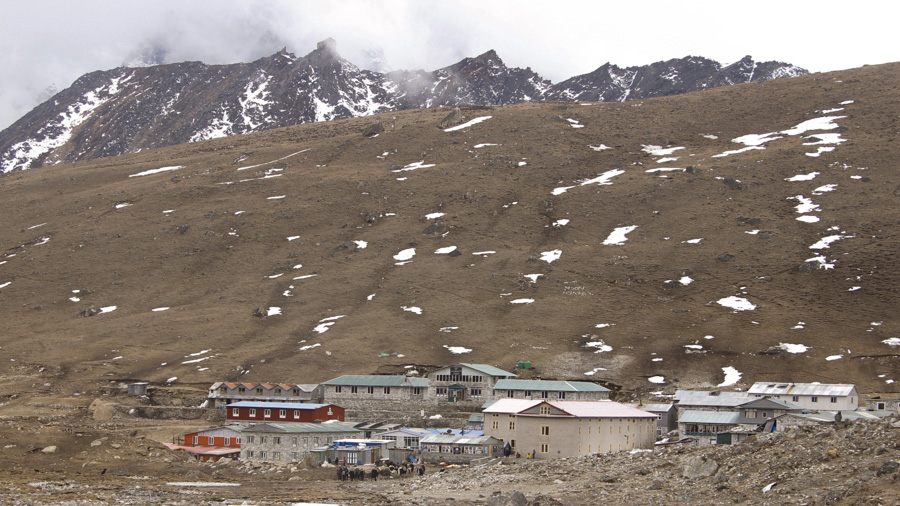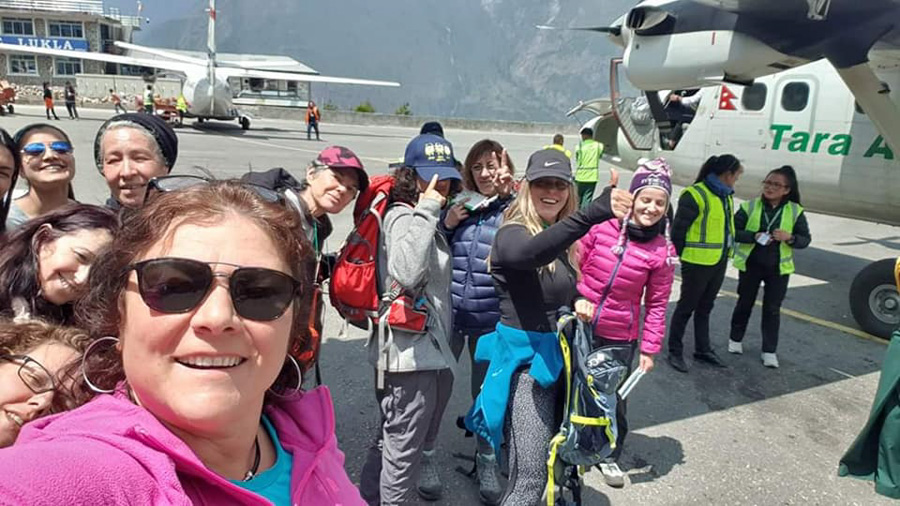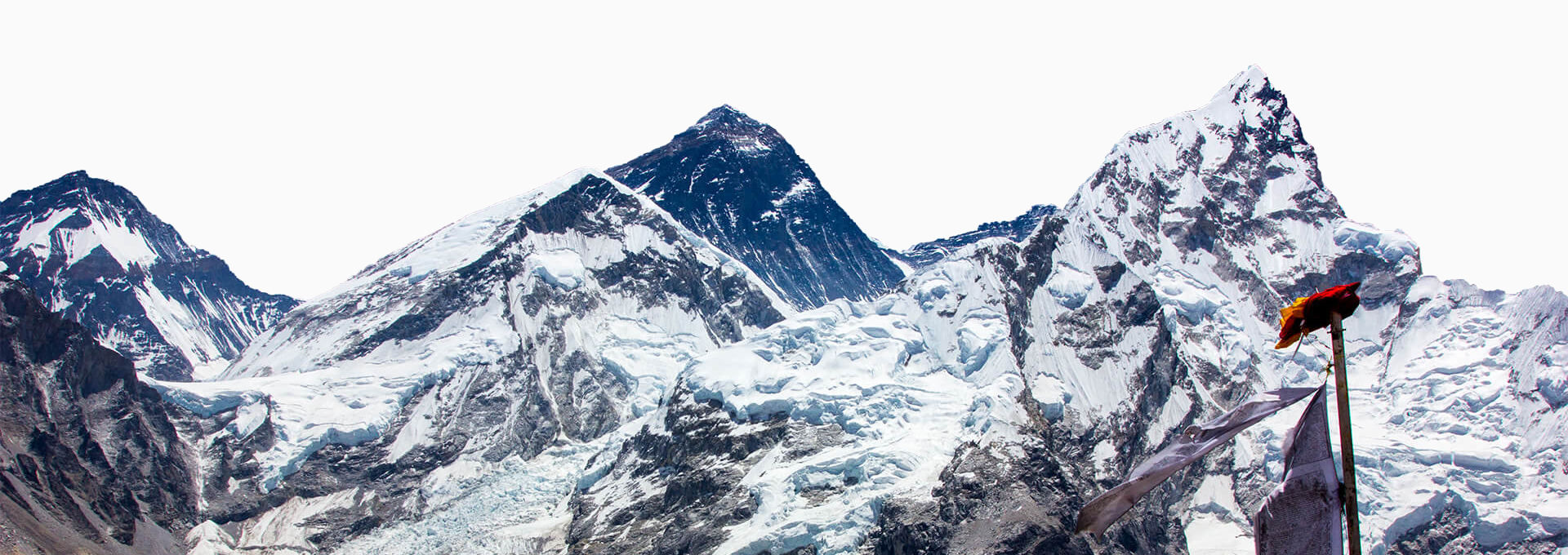
Trekking solo to the Everest Base Camp can be a very rewarding experience that ensures ultimate solitude, flexibility, and even cost-effectiveness. Nevertheless, you should be very concerned about your safety and put in a lot of effort in research and logistics planning. So here is a complete guide for solo trekkers to plan your Everest Base Camp Trek.
Pros:
- Pace up or down as you like, choose your hotels, and eat in places you want. You are the boss.
- Since you are not paying any guides, porters, or agencies, it is the cheapest option.
- Reduces the chance of health hazards like AMS, as you can ascend at your own pace without having to keep up with someone else’s schedule.
- Since you have to prepare on your own, you will be doing more research and understand the trails, history, culture, and people of the Everest Region better. You are likely to talk to more people too.
Cons:
- If there’s an emergency, you have to deal with things on your own. And if there aren’t people around when you sustain an injury, well you are f%#ked.
- In case you need porter assistance at high altitudes, the support staff will cost you a lot more.
- Finding accommodation during peak seasons can and will be a tedious task, especially at the higher altitudes with fewer lodges. Given the limited capacity and pre-bookings from agencies, you might end up in hotel dining rooms if you don’t book ahead.
Is Everest Base Camp Trek Safe for Solo Trekkers?

Yes. Everest Base Camp trek is safe for solo trekkers. In fact, trekking in Nepal is safe and very rewarding in general. We cannot deny that there have been some incidents in the past. But, the percentage is minuscule compared to the people who trek in the country.
The biggest danger in the Everest Base Camp Trek is altitude sickness. If you understand the symptoms of AMS and know how to acclimatize well, EBC Trek is safe. It is becoming increasingly popular among solo trekkers due to accessibility to services, and well-marke, and well-maintained trails. The fact that local service providers can understand and communicate with you also makes things easy for solo trekkers with the local service providers.
Besides, packing all the necessary gears is the key when it comes to ensuring safety. You are your own medic and partner at desperate times. So do read our comprehensive guide to packing for Everest Base Camp trek.
NOT RECOMMENDED:
- We don’t recommend the treks with high passes like crossing over Cho La Pass and other High Passes for solo trekkers because of the technicality and altitude risk.
- Avoid the months of June/July/August (Monsoon) and Jan/Feb (Winter). The trails during monsoon are very slippery, especially in the lower sections, and there is the uncertainty of flights. And during winter, snow covers the trails, and navigation can be challenging if you are alone. Also, the flow of trekkers in both seasons is very low, so reaching out for help in case of emergency will be very difficult.
How fit do I have to be to do Everest Base Camp Trek?

Carrying a heavy backpack and walking continuously for almost two weeks, 6-7 hours every day in mountainous terrains, is not easy. So fitness, both physical and mental, is crucial. You must be an experienced hiker with good fitness to trek to the Everest Base Camp solo.
The best way to prepare yourself for the Everest Base Camp Trek is to hike uphill and downhill with a weight heavier than your actual backpack. So go for multi-day hikes and add leg exercises to strengthen your knees as a part of your training. But if you have any pre-existing health conditions or have just recovered from a particular illness, do consult with your doctor and insurance company.
Read in detail about Everest Base Camp Trek Difficulty here.
Everest Base Camp Trek Cost for Solo Trekker
|
Title |
Cost to a Single Trekker (USD) |
|
Permit- Khumbu Rural Municipality |
USD 18 (~NPR 2000 ) |
|
Permit- Sagarmatha National Park |
USD 31 (~NPR 3000 + 13% VAT) |
|
Flight- Kathmandu to Lukla (both ways) |
USD 358 (179*2) |
|
Flight- Ramechhap to Lukla /with KTM-RHP transfer (both ways) |
USD 294 (147*2) |
|
Bus from Kathmandu to Ramechhap (one way) |
USD 5 – USD 15 |
|
Bus to Jiri/ Salleri (one way) |
USD 7/ USD 14 |
|
USD 5 |
|
|
Hotel- Namche Bazaar (2 nights, Npr 1000 per night) |
USD 20 |
|
USD 5 |
|
|
USD 10 |
|
|
Hotel- Lobuche (Npr 700) |
USD 7 |
|
Hotel- Gorakshep (Npr 700) |
USD 7 |
|
Hotel- Dingboche / Pheriche (Npr 500) |
USD 5 |
|
Hotel- Namche (Npr 1000) |
USD 10 |
|
Hotel- Lukla (Npr 500) |
USD 5 |
|
Meals- 12 days x ~USD 25 per day 12 breakfasts/lunches/dinners with tea/ hot water |
USD 300 |
|
Hot Shower (per shower) |
USD 3 – USD 7 |
|
Battery Charging (per hour) |
USD 1.5 – USD 5 |
|
Everest Link Wifi Cards [600 MB/10 GB] |
USD 5.5 / USD 17.5 |
|
Total Cost if Everest Base Camp Trek (Including two way flights, 12 days trek accommodation, permits and all meals) |
USD 781 (~800) |
Logistics Management for Everest Base Camp Trek

Managing logistics can be a daunting task for Solo Trekkers. No wonder, most trekkers decide to either go with guides or agencies. But don’t you worry, here’s how you can book your services for Everest Base Camp Trek.
Booking Lukla Flights
- Through travel agents– A number of agencies in Thamel help you book flight tickets. The cost, however, may be higher. Besides, there’s a risk of not getting tickets for your desired date if you book after coming to Nepal.
- Booking Online– This is the easiest way to book, and the rates are competitive too. You can either book directly through Airlines, or other websites like HoneyGuide, Sasto Tickets, etc. Before booking, do confirm if the agencies can help with transportation (in case of Ramechhap flights), guarantee free rescheduling, and offer a refund policy in case of cancellation.
Getting Permit for Everest Base Camp
Getting permits is easy. You need two permits, and you can get both of them on the trail. You only need your passport copies. Khumbu Rural Municipality permit counter is in Lukla, and Sagarmatha National Park permit counter is in Monjo.
Booking Hotels in Everest Base Camp Trek

It is difficult to tell a good lodge from a bad one and then get a good room in it by yourself. This difficulty becomes especially relevant during peak trekking season and villages that are higher up with fewer lodges. There’s a good chance you might end up in a hotel’s dining hall. So we recommend you to book ahead.
- Booking as you go: If you don’t want to book beforehand at all, you can ask the lodge to help you with the other stop. Or, start very early and make sure you reach the next stop by noon. However, this is not the most efficient way. Also, sharing a room saves you cost as hotels have twin rooms.
- Online Lodge Booking: Companies like Booking.com, Agoda, Expedia, and HoneyGuide can help. However, please note that Booking.com and Agoda have a limited list of hotels from places like Namche Bazaar and Lukla. However, HoneyGuide helps you book hotels from every single night stop, including Lobuche and Gorakshep. We also help reschedule dates easily from trails over Whatsapp.
Money and ATM:
Trekking solo means you have to be extra careful about carrying enough money so that you can deal with any emergencies. Although there are Money Exchange counters and ATMs in Lukla and Namche Bazaar, it is best to save them for the worse case only as the commissions are higher.
There are plenty of money exchanges in Thamel, so you should do it here before your trek. You need cash to pay in lodges, for meals and permits. Also, a smart way is to book most of the services online and reduce the hassle of carrying more cash. Only a few hotels in Everest Region accept cards, so it is not an alternative.
Travel Insurance
Travel Insurance is the most important thing. You should consider reputed companies like World Nomads, Global Rescue or a well-known local company that covers medical fees and helicopter evacuation up to 6000 meters altitude.
Everest Base Camp Trek for Solo Female Trekkers

Is Everest Base Camp Trek safe for solo female Travellers?
Yes. Trekking in the Everest Base Camp is safe for females. Nepalis are very welcoming people and have the culture of considering guests as God. Compared to trekking in India and other South American trails, Nepal is far more safe for women. Besides, the Sherpa community in Everest region is more matriarchal in nature and women have decision making powers. So, women are respected. The past records also do not show cases of harassment to female trekkers while doing Everest Base Camp Trek.
Here are some relevant links of both good and bad experiences of Solo Female Trekkers for your convenience:
Trip Advisor forum discussion– Solo Female Traveller.. Safe?
Tayta Gentle- 5 things I learned conquering Everest Base Camp as a solo trekker
Megan- Solo Trekking in Nepal as a women
Sheroamssolo- Bad experience with a group in EBC Trek as a solo trekker.
However, if you don’t want to risk going solo, you always have the option of booking a joining a female group or hiring a female guide for extra safety.
Best Agencies for females
You have options to either join a group or book a female guide from agencies. Joining a group can actually cost you less than getting a guide and porter arranged from an agency. But, both options lack flexibility and are expensive overall.
Three Sisters Adventure Trekking is a trusted company that specializes in organizing treks for females. All the staff, including guides and porters, are female. They are based in Pokhara but run trips for Everest Base Camp Trek as well.
Is it safe to get a male guide for a female trekker?
A lot of male guides lead treks for female trekkers. It is common as the female guides are a lot less in number as compared to male. We don’t even hear a lot of bad records as any misbehaving can clearly put the guide’s career at risk. However, it is good to get recommendations or check reviews before selecting male guides so you have a peace of mind.
Finding Independent Female Trekking Guides or porter
If you don’t like the idea of hiring male trekking guides, you can always go for Female trekking guides. The best way to book Independent Female Guide is either from personal trekker recommendations or online platforms like Sherpana, Sherpa Hire, and HoneyGuide. But before booking, please make sure that the Guide’s Insurance is covered and you communicate with the guide.
The problem with some sites is that they don’t provide the guides’ contact information openly until you request the guides. Through HoneyGuide’s website, you can contact and book female trekking guides, as well as female guides based in Lukla. Getting a local guide will save you money as you don’t have to pay for their airfare.







